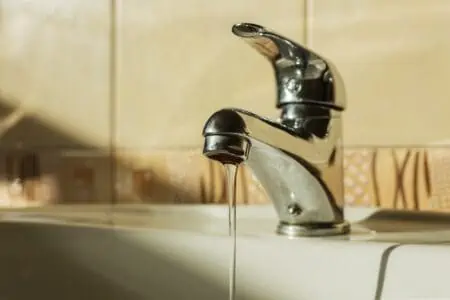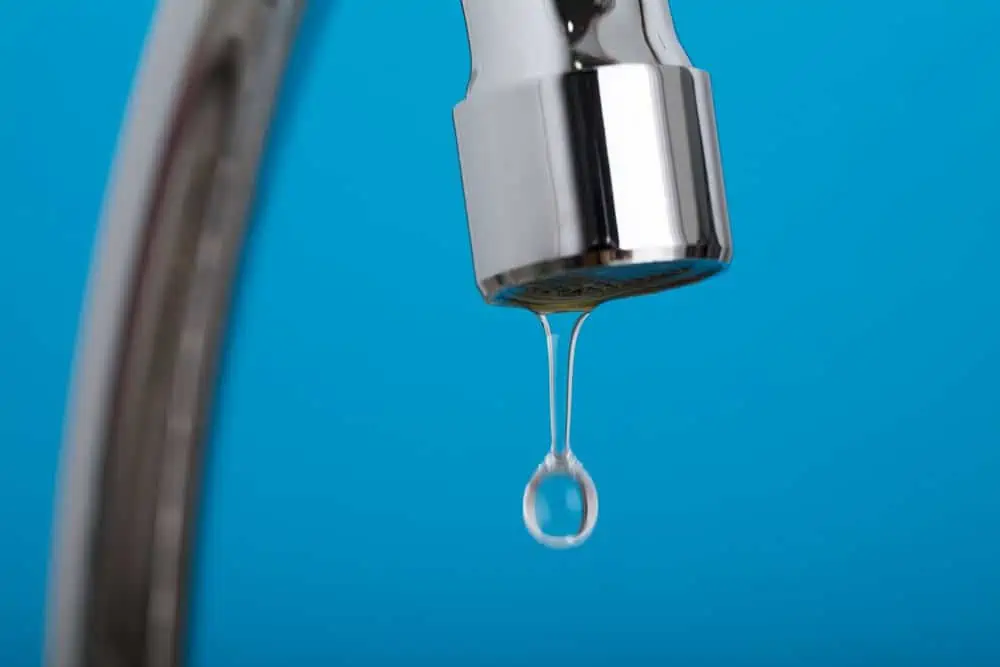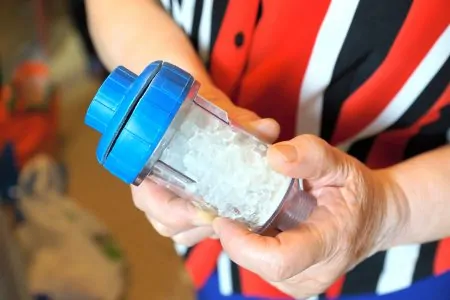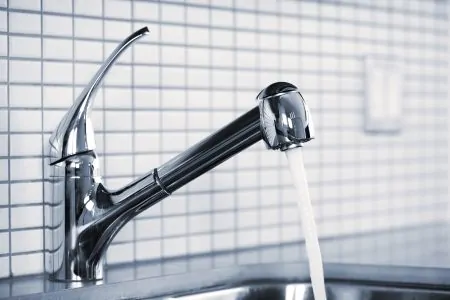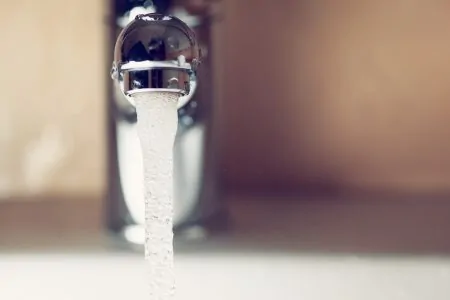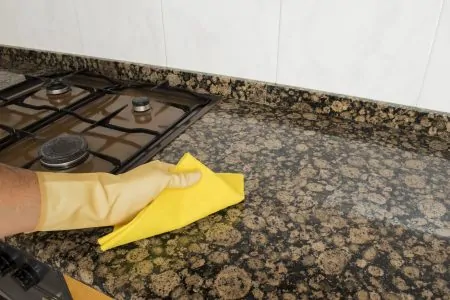Hard water contains high levels of mineral deposits. Magnesium and calcium are the biggest offenders, but why does it matter?
Hard water can scale up your appliances, which shortens their life. We show you hard water statistics and facts to put you in the picture.
Key Takeaways
- Hard water contains high levels of magnesium and calcium, which can cause appliances to scale up and shorten their life.
- 85% of Americans drink hard water, with levels varying between states; New Mexico, Utah, and Western Texas have the hardest water.
- Hard water is not harmful to health but can dry skin, damage hair, and reduce the lifespan of appliances.
- Water hardness can be measured in grains per gallon or parts per million, and water softeners can help reduce hardness levels in homes.
15 Key Hard Water Facts and Data
Hard water data is fascinating because it throws up surprises and challenges what you think you know. What are the 15 most fascinating hard water facts? Let’s take a look:
- According to the World Health Organization, hard water poses zero threat to your health.
- Over one billion glasses of tap water are poured every day in the US.
- While hard water may not pose a health risk, it has been shown to dry your skin.
- New Mexico, Utah, and Western Texas have the hardest water in the United States.
- Oregon, Washington, and Arkansas have the softest water in America.
- Minneapolis has the hardest water of any city.
- Know the difference between totally safe and legally safe. They are not the same thing!
- One leaky faucet could waste up to 695 gallons of water every year.
- The tell-tale signs of hard water are chalky residue on clothes, metal surfaces, and sinks.
- Hard water reduces the lifespan of your appliances.
- The global water softener market is projected to hit $3,570.20 million by 2025.
- Hard water is bad for your hair as it dries the scalp, increasing instances of dandruff.
- Salt-based water softeners are banned in some states, like California, because they harm the environment.
- Consuming too much calcium can affect your stomach and cause nausea, irritability, and even depression.
- Water hardness affects the textile and beverage industries because the water needs to be as pure as possible.
1. Is Hard Water Good for You?
According to the World Health Organization, hard water bears no risk to human health. In some instances, it contributes to our daily calcium and magnesium intake, two ingredients our bodies need.
Conversely, removing the mineral content also has zero risk to humans. It may be that softer water tastes better, which is a reason why so many people choose to filter it.
2. How Many?
Over one billion glasses of tap water are consumed in the US daily. Americans are fortunate because all they need to do is turn on the faucet. Consider the fate of people in developing countries where over 200 million work hours are expelled fetching and carrying fresh water from wells and communal taps.
So, the next time you fill your glass, spare a thought for millions of people in Africa and other developing countries.
3. Bad for Your Skin
While hard water has no detrimental effects on your health, it has been shown to dry your skin more than soft water. This doesn’t affect everyone, but if you care about wrinkles and looking younger, perhaps filtering water is a good thing.
4. Which State?
The United States is home to the hardest water on the planet. New Mexico, Utah, and Western Texas have some of the hardest water in the US. Other notable locations include Wisconsin, Indiana, and Florida.
There are rivers in New Mexico, Texas, Kansas, and Arizona with 1,000 parts of calcium carbonate per million. Can you imagine what it would taste like to drink? You would be better off sucking on a chalk stick!
5. Soft Water
On the flip side of hard water, the softest water is found in states like Oregon, Washington, and Arkansas. Surprisingly, New York also scores well for water softness. It has a water scale of 63 parts per million.
6. Hard City
So far, we’ve looked at the water ratings per state, but what about the cities? Here are the worst offenders:
- Minneapolis, MN.
- Jacksonville, FL.
- Indianapolis, IN.
- San Jose, CA.
- Las Vegas, NV.Kansas City, MO.
- Phoenix, AZ.
- Salt Lake City, UT.
7. Totally Safe or Legally Safe?
You may think your water is drinkable without risk, but the Environmental Protection Agency (EPA) classifies water as “totally safe” or “legally safe.” So, what’s the difference?
Totally safe drinking water contains no known contaminants and is as pure as possible. Legally safe water has to meet minimum regulations set by the Safe Drinking Water Act (SDWA). It contains pollutants, but is still considered safe (1).
According to the act, the EPA sets legal limits on contaminants to ensure water quality is safe to drink. However, the EPA thinks there are as many as 10,000 contaminants in unregulated water. It’s why you should filter “legally safe” water before drinking.
You might be surprised to learn that arsenic, lead, and microbial are among the contaminants regulated by the CWA and considered safe to drink at low levels. Mining, manufacturing, and fracking all contribute to water contamination.
8. Leaky Faucets
Regardless of the water quality, just one leaky faucet could waste as much as 1.9 gallons of water daily. Over the year, this adds up to 695 gallons of water. And that’s just one leaky faucet.
9. Tell Tale Signs of Hard Water
So, how do you know if you have hard water? Luckily for you, there are tell-tale signs. Here’s what to look out for:
- A chalky residue on sinks, faucets, dishes, and cutlery.
- Residue left on your hands after washing (caused by soap reacting with high calcium levels).
- Mineral stains on clothing after washing.
- Reduced water pressure.
- Scaling of pipes and kettles.
10. Kills Your Appliances
That shiny new water heater will have a shorter life in hard water areas. The minerals build up on heating elements and pipework, causing the appliance to work overtime to produce the same performance.
Think of it like your arteries getting clogged because of a lousy diet and your heart malfunctioning. The same happens to your water heater, washing machine, kettle, and other appliances.
11. What About a Water Softener?
The global water softener market is estimated to be worth $3,570.40 million by 2025. That’s a 7.1 percent increase in CAGR from 2018 to 2025. It proves that hard water is more common than you might think.
The residential market saw the biggest increase in softener use, doubling the commercial and industrial sectors.
12. Dandruff
Washing your hair in hard water can increase the chances of developing dandruff. This is because hard water is believed to dry your skin more than soft water, causing flaking on the scalp.
It can even accelerate gray hair and increase split ends. So, if your hair is your pride and joy, maybe you should invest in a water softener.
13. Bad for the Environment
Salt-based water softeners are falling foul of environmental rules because they increase the amount of salt in the sewer system and soil. The softener exchanges the high mineral levels in water with salt in a treatment called ion exchange.
The increased salt levels then get flushed away and enter the environment, causing damage to plant, animal, and insect life.
14. Medical Issues
While it is rare for hard water to cause medical issues, your body can suffer when you absorb too much calcium. You might experience stomach pains, nausea, irritability, and even depression.
Prolonged exposure to high levels of calcium leads to a condition called hypercalcemia.
15. Bad for Business
Hard water may not be an issue in residential properties, but it can cause massive disruption to some industries. The textile industry needs as pure water as possible to get the best dying results.
The beverage industry needs mineral-free water to produce and preserve drinks inside the can.
Water Hardness Scale
Here is a handy chart showing you how they measure water hardness. The central column is recorded in milligrams, liters, and parts per million.
| Grains Per Gallon | Mg/L and PPM | Classification |
| 1 or less | 17.1 or less | Soft |
| 1 to 3.5 | 17.1 to 60 | Slightly hard |
| 3.5 to 7 | 60 to 120 | Moderately hard |
| 7 to 10 | 120 to 180 | Hard |
| 10 + | 180 + | Very hard |
Hard Water Vs. Soft Water
What are the key differences between hard and soft water? Does their chemical composition vary, and is hard water bad for you?
Hard Water
Hard water contains a high level of dissolved minerals like magnesium and calcium. It is usually found in areas with high chalk content in the soil. Surprisingly, 85 percent of Americans live in an area with hard water.
If you want to know the state of the water where you are, the United States Government has produced a map showing water hardness (2).
Water becomes hard as it filters through the water table, picking up minute magnesium and calcium particles. It then carries these contaminants through the water pipes directly into your home.
Soft Water
Soft water contains fewer than 85.5 parts per million of calcium carbonate. Mountain water is typically softer because it flows over hard rocks like granite. Granite is dense and non-porous, so the water skims along the surface, picking up fewer contaminants.
Soft water makes soap lather easier, and you get less scaling of appliances and kettles. Natural springs deep within the rock are prime examples of where to find soft water.
FAQs
The Hard Facts About Hard Water
We hope you enjoyed our rundown of hard water data and have learned something new. As we said at the start, 85 percent of Americans live with hard water, so it’s not as if there’s anything we can do about it anyway.
The disadvantages of hard water and its effects are minimal, so grab a glass and open that faucet. Enjoy!
